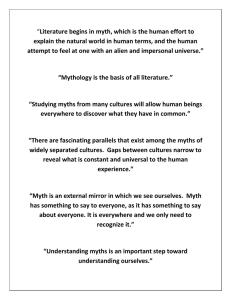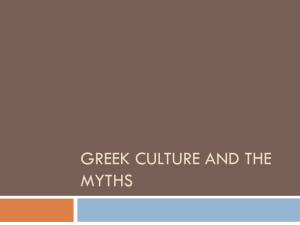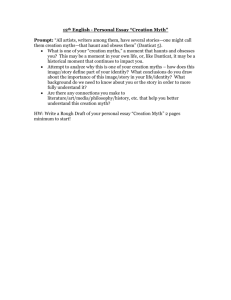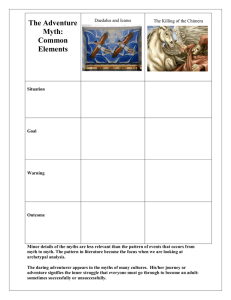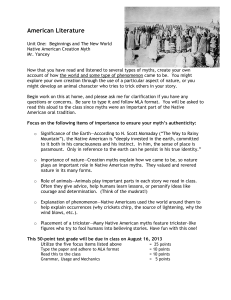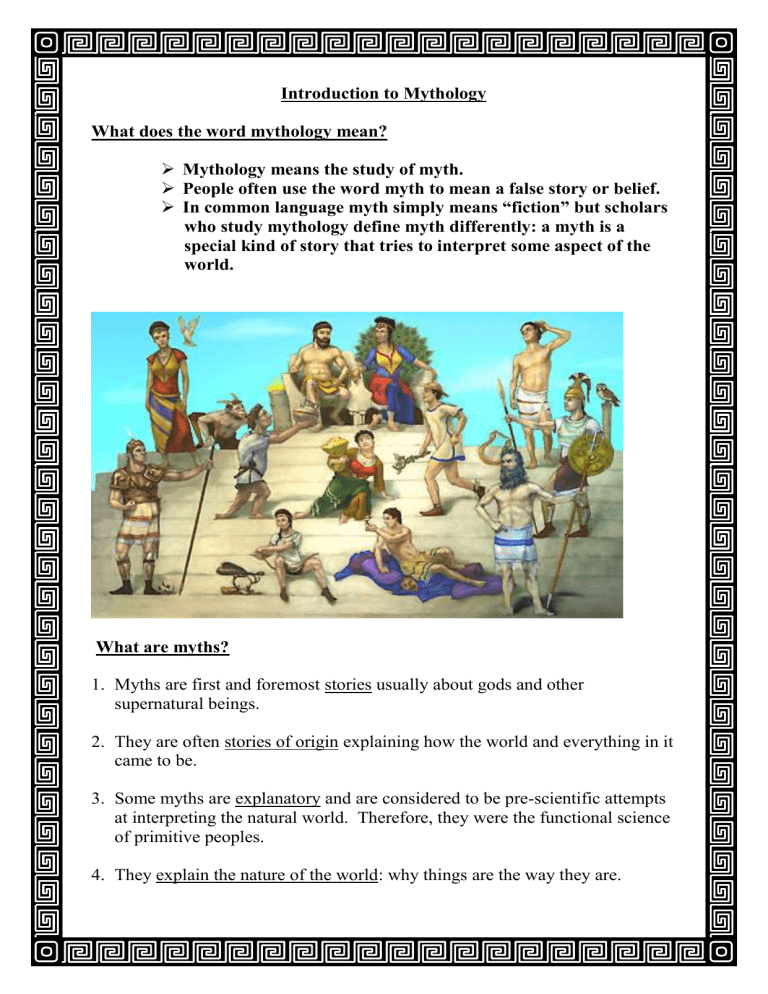
Introduction to Mythology What does the word mythology mean? Mythology means the study of myth. People often use the word myth to mean a false story or belief. In common language myth simply means “fiction” but scholars who study mythology define myth differently: a myth is a special kind of story that tries to interpret some aspect of the world. What are myths? 1. Myths are first and foremost stories usually about gods and other supernatural beings. 2. They are often stories of origin explaining how the world and everything in it came to be. 3. Some myths are explanatory and are considered to be pre-scientific attempts at interpreting the natural world. Therefore, they were the functional science of primitive peoples. 4. They explain the nature of the world: why things are the way they are. 5. Myths often address social issues. For example, why people are punished, how the good are rewarded, which qualities in people are considered good. 6. Myths concern the powers that control the human world and the relationship between those powers and human beings. As such, they represent the religious beliefs of a culture and may be the earliest form of history and philosophy. 7. Myths are strongly structured. They have a narrative structure consisting of a beginning, middle, and end. a. Beginning: introduction to the characters that are in a situation; usually a conflict with other characters. b. Middle: the situation grows more complex, problems occur, tension develops. c. End: the tension and problems are resolved. 8. Myths were a way to explain reality. Three Types of Myths Divine Myth: Stories in which supernatural beings are the main actors. They explain why the world is the way it is (i.e. creation myths). Legend: Stories of the great deeds of human heroes or heroines; they often explain the past (i.e. Trojan war). Folktale: non-sacred fictional stories of both human and non-human characters or animals. Folktales can be entertaining while teaching the audience a lesson or explaining human behaviours. Mythic Tradition Myths were passed down orally – when you read them you will see many instances of repetition and constant retelling of the events which was how the people were able to pass down the stories. The main characters are gods and goddesses (immortals), heroes and heroines, human beings (mortals) and animals. The gods are immortal, but they do make mistakes and have human emotions. Hubris: extreme pride is a fault for many humans in myths (they usually meet great difficulties that lead them to learn to change their ways). Many myths are about the concept of fate – can people change their fate? Escape it? Or are they bound to it?

